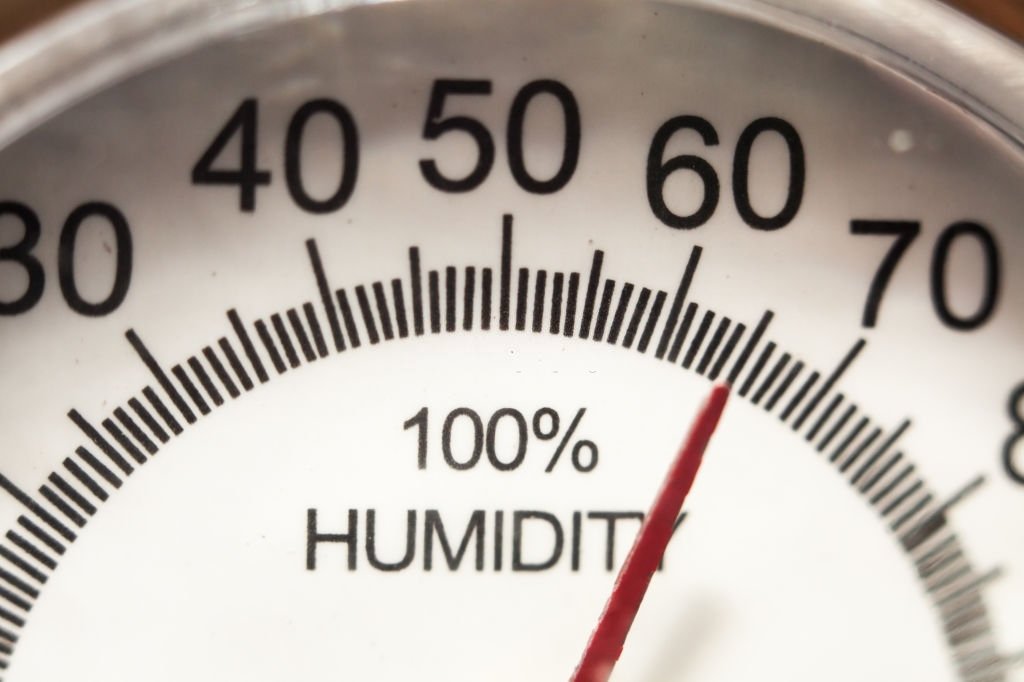What is humidity? “The amount of water vapors in the air is known as humidity. On the other side, the actual amount of water vapors in the air is referred to as relative humidity which is mostly used in weather reports. It denoted as a percentage of the maximum amount of water vapor the air can hold at the same atmospheric temperature.”
When the air has increased moisture content, during humid weather, our sweat won’t evaporate, and our body feels more hot and sticky. To cool down body has to work harder. This results in an increased amount of sweating, blood pressure, and more circulation. Excessive sweating can cause a loss of water and chemicals that the body needs in order to function properly, potentially putting our health in jeopardy.
- What are the risks of high humidity on health?
Increased humidity levels have adverse effects on our body and make our body weaker and lethargic. Hyperthermia, or over-heating as a result of your body’s inability to effectively let out heat, can negatively impact your health in conditions of high humidity. Following are some adverse effects:
- Dehydration
- Fatigue
- Muscle cramps
- Heat exhaustion
- Fainting
- Heatstroke
- Humidity effect on the ability to sweat:
The body’s ability to cool down is adversely affected by humidity. Our body feels more uncomfortable as the body is unable to produce enough sweat due to increased moisture content in the air. The evaporation of sweat on our skin is our body’s way of naturally cooling us down in warm temperatures.
- Stress On Your Heart & Circulation When You Exercise:
Going outside and working up a sweat in an environment with lots of moisture in the air can be a real workout for your heart. “Not only does humidity make the temperature feel hotter than thermometers register, it makes our bodies work hard to stay cool,” Dr. Seema Sarin M.D., director of lifestyle medicine at EHE Health, a healthcare provider, tells Bustle. Mugginess, she says, tends to increase blood circulation and breathing, as the body tries hard to decrease its core temperature and stay comfortable.
- Effect on Asthma:
Our nasal passage becomes dried as the atmospheric pressure and humidity. This can exaggerate allergy symptoms and make them feel discomfort, irritation, and even develop sinus infections. On the other side, high humidity encourages the development of mold, mildew, dust mites, and other allergens that can equally negatively impact our wellness and health. The air can become more difficult to breathe as well, which can result in the increased risk of an asthma attack and triggers for sufferers of the condition. Maintaining proper humidity control can protect against developing such issues by ensuring our nasal passages possess sufficient moisture, which acts as a barrier of sorts against allergic and asthmatic symptoms and trigger encouragement.
- Effect on hydration level:
Sweating constantly in steamy weather can be seriously uncomfortable but it can also mean you get dehydrated. When you sweat and perspire, you can lose electrolytes such as sodium and chloride, which the body needs to function. “It’s very important to stay hydrated to avoid fainting, muscle cramps, and overheating — especially in the summertime.” Drink lots of water or drinks with electrolytes when the mercury peaks and humidity rises.
- Heat Stress: Despite the fact that humidity doesn’t actually affect the temperature in an environment, it can still convince our bodies that temperatures are higher than they really are. This is due to the fact that moisture remains on our skin in circumstances when the relative humidity (RH) levels are higher, causing it to not dissipate nearly as easily. Our bodies then cause us to perspire even more in an attempt to naturally combat this sensation. The result is us feeling warmer – sometimes to the point of overheating, which can result in serious health issues such as heat stroke and exhaustion.
- Reduced Mental Stimulation/Focus:
When relative humidity levels are imbalanced, it can put exponentially more strain on our bodies, requiring them to work harder to function as they normally would. This means our minds are required to work harder, and as a result, it can occasionally prove to be more difficult to focus and remain mentally invested in poorly humidified conditions. This is why educational facilities, hospitals, and offices require proper humidity control in addition to protecting inhabitants from health issues.
- Airborne Infection Potentialities:
When an environment’s conditions feature overly low or high humidification, it can cause airborne bacteria and particles to more easily reach us. This can result in a greater risk of developing lung infections and illnesses such as influenza, as we can more actively absorb bacteria in poorly humidified conditions. Therefore, their reach is reduced, and it is relatively easier to control the spread of infection. Airborne infection control is important in environments where chemicals, particles, and/or bacteria are introduced to the airstream, such as hospitals, paint spray booths, sanding decks, and elementary schools.
- How to recover from the Effects of High Humidity?
To avoid these dangers caused by the effects of humidity, be sure to take frequent breaks and hydrate often when exposed to humid weather. If you feel yourself becoming fatigued, take a moment to cool off. Find a location with air conditioning if you or anyone with you is at high risk for developing any of the above health dangers, such as older adults or young children. If you continue to feel worse or experience the above conditions, seek medical attention.

